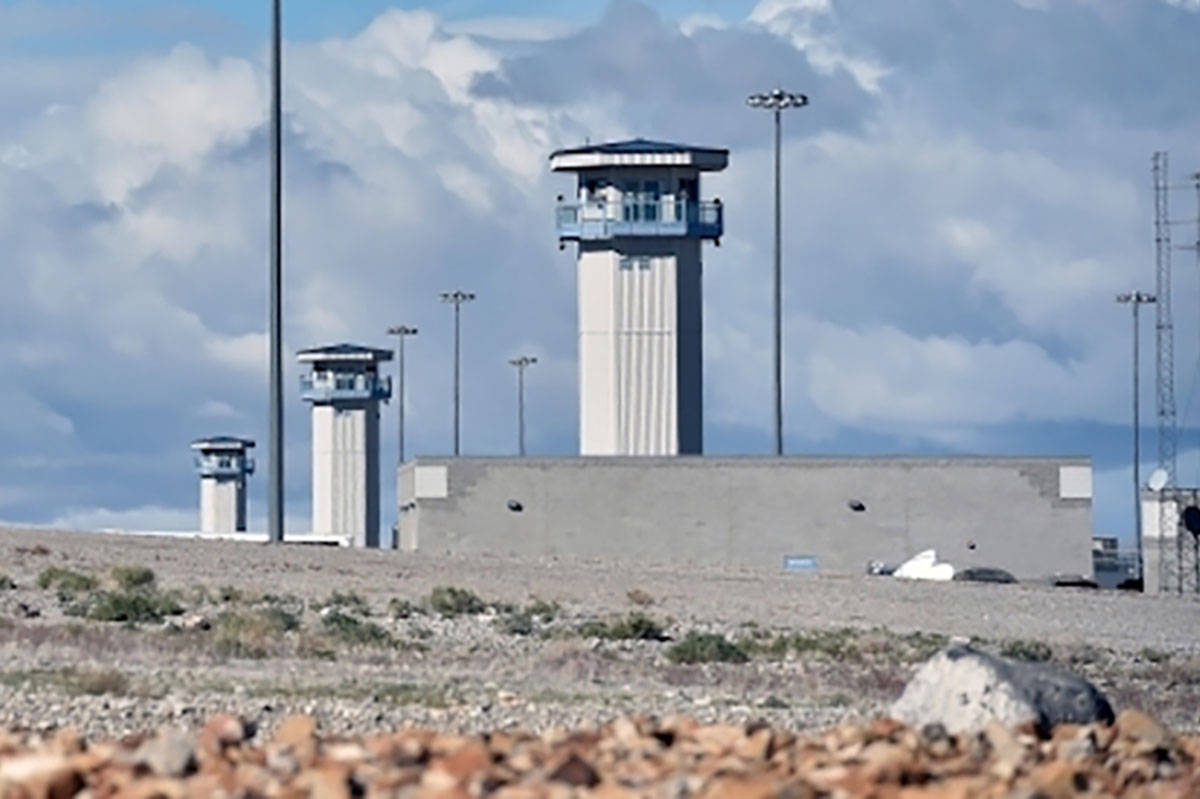Nevada attorneys urge statewide release of prisoners amid outbreak

A group of Nevada defense attorneys joined the call to release certain prisoners in an effort to stave off the spread of coronavirus.
In a 38-page petition filed Friday night with the Nevada Supreme Court, lawyers from Washoe and Clark counties asked justices to order Gov. Steve Sisolak and prison officials to release inmates who fall under one of three categories: those who have been granted parole yet remain locked up; inmates with a high risk of serious harm from COVID-19 and expected to be released within 18 months; and any nonviolent offenders serving sentences set to expire in the next three years, as long as they provide an approved parole plan.
The petition comes a week after lawyers for Gregory Kerkorian, the nephew of an architect of Las Vegas megaresorts, said that keeping him behind bars during the coronavirus pandemic would amount to cruel and unusual punishment. Releasing him and others, attorneys Michael McAvoyAmaya and Michael Horvath argued, could ease the burden on hospitals already becoming overwhelmed with COVID-19 patients.
Joining McAvoyAmaya and Horvath in an amicus curiae, or “friend of the courts,” brief were Nevada federal public defenders, Clark County public defenders and special public defenders, Washoe County public defenders and alternate public defender, the American Civil Liberties Union of Nevada, and Nevada Attorneys for Criminal Justice.
“An outbreak of COVID-19 among Nevada’s incarcerated population will be a crisis for inmates, prison staff and their families, and the hospitals that serve them,” the brief stated. “This Court can and should protect against this.”
The petition cities Nevada’s high incarceration rate, with roughly 13,000 inmates and about 2,500 full-time employees, and the difficulties of social distancing behind bars, saying that an outbreak within the prison system “will be catastrophic.”
As of Saturday afternoon, five Department of Corrections employees had tested positive for coronavirus, according to prison spokesman Scott Kelley. All of the sick employees were sent home for 14 days of medical isolation, he said. No offenders had tested positive.
Officials with the governor’s office have declined to comment, citing pending litigation.
Like lawyers for Kerkorian, the group of Nevada attorneys argued that keeping the most vulnerable locked up would violate their constitutional rights.
“Nevada’s incarcerated persons have a right to prison conditions that do not needlessly expose them to COVID-19,” the petition stated. “Waiting for an outbreak to occur is too late to assert this right.”
The lawyers also asked the high court to order the Department of Corrections to lay out plans to prevent the spread of coronavirus behind prison walls. The Nevada Sentencing Commission, headed up by Justice James Hardesty, has scheduled a meeting for Monday. One topic will be “Preventing the Spread of Communicable Diseases in the Criminal Justice System.”
Late last month, Attorney General William Barr announced that the U.S. Bureau of Prisons could release some of its oldest and most vulnerable inmates.
The Nevada lawyers also asked for the court to order changes within the prison system including, increased disinfection, social distancing, adequate supplies of soap, hand sanitizer, tissue and other hygiene products, testing and treatment for those with COVID-19, waiver of co-pays for medical treatment, and proper staffing and equipment.
Since the Department of Corrections has suspended all in-person visitation, each penitentiary should offer virtual visitation options, the lawyers added.
“Decarceration not only protects those in detention centers, it also protects the community at large,” Friday’s brief stated. “The same reasons that make jails, prisons, and other detention centers particularly vulnerable to the introduction of the virus are the same reasons that protecting the incarcerated is all the more vital — every interaction between an incarcerated person and institution staff, court personnel, medical providers, or other community member puts the community at large at risk.”
Contact David Ferrara at dferrara@reviewjournal.com or 702-380-1039. Follow @randompoker on Twitter.